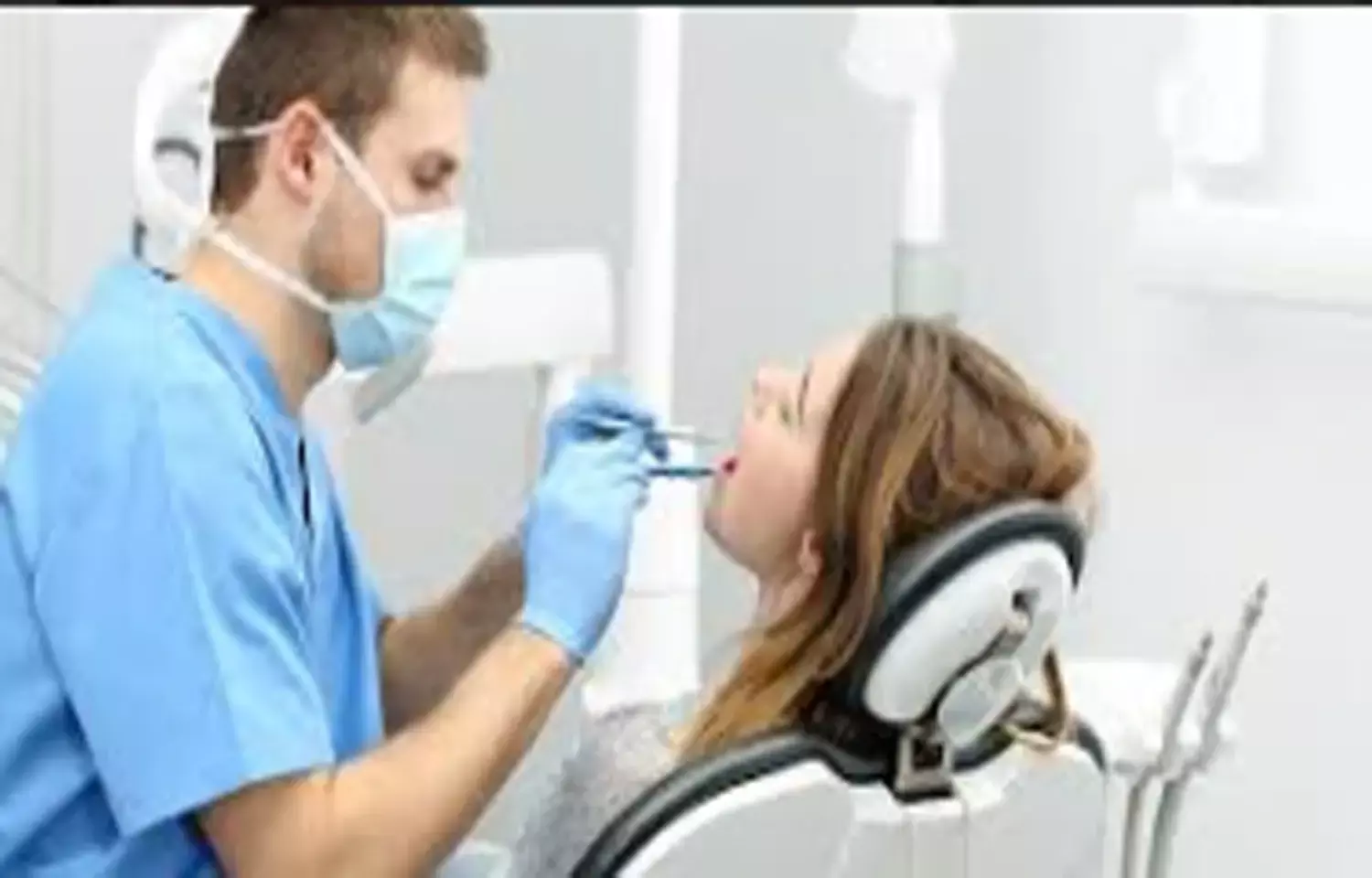- Home
- Medical news & Guidelines
- Anesthesiology
- Cardiology and CTVS
- Critical Care
- Dentistry
- Dermatology
- Diabetes and Endocrinology
- ENT
- Gastroenterology
- Medicine
- Nephrology
- Neurology
- Obstretics-Gynaecology
- Oncology
- Ophthalmology
- Orthopaedics
- Pediatrics-Neonatology
- Psychiatry
- Pulmonology
- Radiology
- Surgery
- Urology
- Laboratory Medicine
- Diet
- Nursing
- Paramedical
- Physiotherapy
- Health news
- Fact Check
- Bone Health Fact Check
- Brain Health Fact Check
- Cancer Related Fact Check
- Child Care Fact Check
- Dental and oral health fact check
- Diabetes and metabolic health fact check
- Diet and Nutrition Fact Check
- Eye and ENT Care Fact Check
- Fitness fact check
- Gut health fact check
- Heart health fact check
- Kidney health fact check
- Medical education fact check
- Men's health fact check
- Respiratory fact check
- Skin and hair care fact check
- Vaccine and Immunization fact check
- Women's health fact check
- AYUSH
- State News
- Andaman and Nicobar Islands
- Andhra Pradesh
- Arunachal Pradesh
- Assam
- Bihar
- Chandigarh
- Chattisgarh
- Dadra and Nagar Haveli
- Daman and Diu
- Delhi
- Goa
- Gujarat
- Haryana
- Himachal Pradesh
- Jammu & Kashmir
- Jharkhand
- Karnataka
- Kerala
- Ladakh
- Lakshadweep
- Madhya Pradesh
- Maharashtra
- Manipur
- Meghalaya
- Mizoram
- Nagaland
- Odisha
- Puducherry
- Punjab
- Rajasthan
- Sikkim
- Tamil Nadu
- Telangana
- Tripura
- Uttar Pradesh
- Uttrakhand
- West Bengal
- Medical Education
- Industry
Dental professionals at high occupational risk of COVID-19, Study says

According to a recent research carried out by a team from the Clinical Immunology Service, Institute for Immunology and Immunotherapy, University of Birmingham, Birmingham, UK, it has been observed that dental care professionals (DCPs) are thought to be at enhanced risk of occupational exposure to severe acute respiratory syndrome coronavirus 2 (SARS-CoV-2).
The research is published in the Journal of Dental Research.
Since, robust data to support this from large-scale seroepidemiological studies are lacking, A.M. Shields and colleagues carried out a longitudinal seroprevalence analysis of antibodies to SARS-CoV-2 spike glycoprotein, with baseline sampling prior to large-scale practice reopening in July 2020 and follow-up postimplementation of new public health guidance on infection prevention control (IPC) and enhanced personal protective equipment (PPE).
The researchers included a total of 1,507 West Midlands DCPs. Baseline seroprevalence was determined using a combined IgGAM enzyme-linked immunosorbent assay and the cohort followed longitudinally for 6 mo until January/February 2021 through the second wave of the coronavirus disease 2019 pandemic in the United Kingdom and vaccination commencement.
The key findings highlighted from the study were-
- Baseline seroprevalence was 16.3%, compared to estimates in the regional population of 6% to 7%.
- Seropositivity was retained in over 70% of participants at 3- and 6-mo follow-up and conferred a 75% reduced risk of infection.
- Nonwhite ethnicity and living in areas of greater deprivation were associated with increased baseline seroprevalence.
- During follow-up, no polymerase chain reaction–proven infections occurred in individuals with a baseline anti–SARS-CoV-2 IgG level greater than 147.6 IU/ml with respect to the World Health Organization international standard 20-136.
- After vaccination, antibody responses were more rapid and of higher magnitude in those individuals who were seropositive at baseline.
These results led the authors to concluded that "natural infection with SARS-CoV-2 prior to enhanced PPE was significantly higher in DCPs than the regional population. Natural infection leads to a serological response that remains detectable in over 70% of individuals 6 mo after initial sampling and 9 mo from the peak of the first wave of the pandemic."
The researchers called for future research on the efficacy of COVID-19 vaccination strategies (eg, different doses, vaccine combinations) and on variants of concern. "Further studies are necessary to comprehensively understand whether these comparative statistics represent a true lowering of exposure rates of [dental professionals] following reopening of general dental practices and the additional precautions taken to ensure practices became COVID-19 secure," they wrote.
Dr. Nandita Mohan is a practicing pediatric dentist with more than 5 years of clinical work experience. Along with this, she is equally interested in keeping herself up to date about the latest developments in the field of medicine and dentistry which is the driving force for her to be in association with Medical Dialogues. She also has her name attached with many publications; both national and international. She has pursued her BDS from Rajiv Gandhi University of Health Sciences, Bangalore and later went to enter her dream specialty (MDS) in the Department of Pedodontics and Preventive Dentistry from Pt. B.D. Sharma University of Health Sciences. Through all the years of experience, her core interest in learning something new has never stopped. She can be contacted at editorial@medicaldialogues.in. Contact no. 011-43720751
Dr Kamal Kant Kohli-MBBS, DTCD- a chest specialist with more than 30 years of practice and a flair for writing clinical articles, Dr Kamal Kant Kohli joined Medical Dialogues as a Chief Editor of Medical News. Besides writing articles, as an editor, he proofreads and verifies all the medical content published on Medical Dialogues including those coming from journals, studies,medical conferences,guidelines etc. Email: drkohli@medicaldialogues.in. Contact no. 011-43720751


